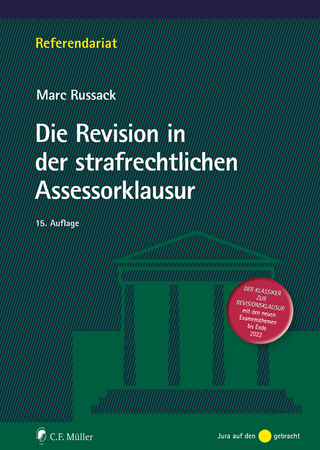
The Elevator Effect
Oxford University Press Inc (Verlag)
978-0-19-762540-8 (ISBN)
The Elevator Effect: Contact and Collegiality in the American Judiciary presents a comprehensive, first of its kind examination of the importance of interpersonal relationships among judges for judicial decision-making and legal development. Regarding decision-making, the authors demonstrate that more frequent interpersonal contact among judges diminishes the role of ideology in judicial decision-making to the point where it is both substantively and statistically imperceptible. This finding stands in stark contrast to judicial decision-making accounts that present ideology as an unwavering determinant of judicial choice. With regard to legal development, the book shows that collegiality affects both the language that judges use to express their disagreement with one another and the precedents they choose to support their arguments. Thus, the overriding argument of The Elevator Effect is that collegiality affects nearly every aspect of judicial behavior.
The authors draw on an impressive and unique original collection of data to untangle the relationship between judges' interpersonal relationships and the law they produce. The Elevator Effect presents a clear and highly readable narrative backed by analysis of judicial behavior throughout the U.S. federal judicial hierarchy to demonstrate that the institutional structure in which judges operate substantially tempers judicial behavior. Written in a broad and accessible style, this book will captivate students across a range of disciplines, such as law, political sciences, and empirical legal studies, and also policymakers and the public.
Morgan L.W. Hazelton is an Associate Professor of Political Science and Law (by Courtesy) at Saint Louis University. She studies how features of courts influence the decisions that litigants and judges make drawing on her background in both law and political science. Her work includes Persuading the Supreme Court: The Significance of Briefs in Judicial Decision-Making. She received her B.A. from the University of New Mexico, J.D. from the University of Texas at Austin, and her Ph.D. from Washington University in St. Louis. Rachael K. Hinkle is an Associate Professor in the Department of Political Science at the University at Buffalo, SUNY. Her research agenda focuses on judicial politics with particular attention to gleaning insights into legal development from the content of judicial opinions and other legal texts through the use of computational text analytic techniques. Her work includes Persuading the Supreme Court: The Significance of Briefs in Judicial Decision-Making. She received her B.A. from Huntington University, J.D. from Ohio Northern, and her Ph.D. from Washington University in St. Louis. She clerked in the District of Arizona and the Sixth Circuit. Michael J. Nelson is a Professor of Political Science and Affiliate Law Faculty at Pennsylvania State University. He studies the causes and consequences of judicial power in the United States and abroad and is the author of Black and Blue: How African Americans Judge the American Legal System, The Politics of Federal Prosecution, and Judging Inequality: State Supreme Courts and the Inequality Crisis. He received his B.A. from Drake University and his Ph.D. from Washington University in St. Louis.
List of Figures
List of Tables
Chapter 1: The Missing Link: The Importance of Collegiality for Judicial Behavior
Chapter 2: Understanding Collegiality
Chapter 3: Interpersonal Contact and Publicizing Disagreement
Chapter 4: Why Does Collegiality Matter?
Chapter 5: The Supreme Court: From the Boarding House to the Marble Temple
Chapter 6: The Lunchroom Politics of Intercourt Relations
Chapter 7: Collegiality and the Language of Dissent
Chapter 8: The Impact of Relationships on the Use of Precedent
Chapter 9: Taking Collegiality Seriously in Designing and Studying Courts
Bibliography
| Erscheinungsdatum | 28.06.2023 |
|---|---|
| Zusatzinfo | 29 |
| Verlagsort | New York |
| Sprache | englisch |
| Maße | 163 x 236 mm |
| Gewicht | 549 g |
| Themenwelt | Recht / Steuern ► Allgemeines / Lexika |
| Recht / Steuern ► EU / Internationales Recht | |
| Recht / Steuern ► Strafrecht ► Strafverfahrensrecht | |
| Sozialwissenschaften ► Politik / Verwaltung | |
| ISBN-10 | 0-19-762540-1 / 0197625401 |
| ISBN-13 | 978-0-19-762540-8 / 9780197625408 |
| Zustand | Neuware |
| Informationen gemäß Produktsicherheitsverordnung (GPSR) | |
| Haben Sie eine Frage zum Produkt? |
aus dem Bereich


